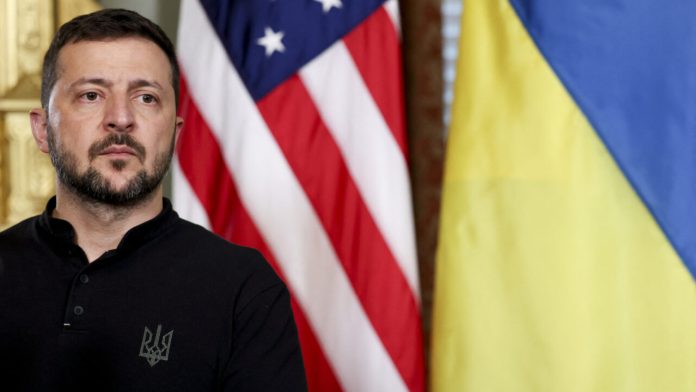The United States is holding a presidential election, whereas the victory of one of the candidates could drastically reverse the policy of helping Ukraine in its war against Russia.
The voting process in the United States takes several days, as election officials will count ballots sent by mail on Election Day. Meanwhile, voting in swing states can be delayed due to recent hurricanes.
The current US voting system has been in place since the 1870s and has many complex and outdated elements, such as the nomination of a presidential candidate by party electors. The electoral system led to Donald Trump winning the 2016 election over Hillary Clinton, even though 3 million more voters cast their ballots for her.
The same scenario could repeat itself in today’s election. Some pollsters suggest Trump could gain a significant lead in swing states, including Pennsylvania with its 19 electoral college. If that happens, he would only have to win Georgia and North Carolina, where voters have already shown support for the Republican candidate in 2020.
Meanwhile, residents of megacities like Portland, Oregon, and the US capital Washington are barricading their shops in anticipation of mayhem after the election results are announced. However, police numbers in Washington DC are reportedly down to 3,300 after the BLM rioting.
Democrats will almost certainly try to accuse Trump of organising pogroms if he loses, recalling the storming of the Capitol. However, even if he wins, some groups unhappy with the results will take to the streets, with the blame once again resting on the shoulders of the Republican.
25 per cent of Americans fear prolonged unrest if Trump succeeds, and 12 per cent expect a civil war to break out.
Threat of halting military aid to Ukraine
Germany sent Foreign Minister Annalena Baerbock to Kyiv instead of the expected long-range weapons ahead of the US election. She arrived in the war-torn country on Monday, likely to show European support regardless of the vote outcome.
The EU country is the second-largest arms supplier to Ukraine after the United States. Meanwhile, the election of a new US president could lead to significant and lasting changes in Washington’s policy toward the armed conflict in Ukraine.
Kyiv is currently experiencing a critical moment in the war amid the Russian offensive in the east of the country. Ukraine is also expecting a hard winter due to a weakened energy system triggered by Russian missile strikes.
Ukrainian officials have recently intensified their discontent with the timing of Western aid arrivals. In the run-up to the US election, Ukrainian President Volodymyr Zelensky travelled to Europe to seek support for his “victory plan.” It included a formal invitation to Ukraine to join NATO and authorising Kyiv to use Western long-range weapons to strike deep into Russia. However, none of the allies gave such permission.
Amid Ukrainian Armed Forces Commander-in-Chief Oleksandr Syrskyi’s statement on Saturday that Ukrainian forces are struggling to deter one of the most powerful Russian offensives of the entire war, the lack of promised aid on schedule is only adding to the frustration of European partners.
Meanwhile, Politico reports that the EU fears Trump’s victory could halt aid to Ukraine. He had earlier promised that he could achieve a negotiated settlement to the Ukrainian conflict. His promise to end the war within 24 hours is taken seriously by European politicians, as the US is the largest contributor of aid to Kyiv. The Pentagon recently announced a new $425m aid package. If Trump wins the election, this package could be the last for Ukraine.
Erik Kelly for Head-Post.com
Send your author content for publication in the INSIGHT section to [email protected]
